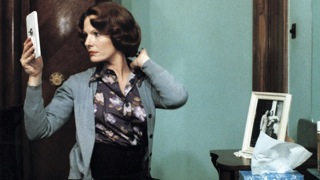This seems like a caricature (and a bit sexist). Obviously female hysteria is a central feature of melodrama and Gone with the Wind is no exception. Part of what's interesting about the film's popularity from an historical perspective is it indicates that male audience members of the 1930s were more willing to see a long movie about a female protagonist than men today, suggesting that audiences at the time were somewhat less segregated along gender lines than they are now and that films about women had more cultural prestige--in contrast with the present where the most prestigious Hollywood filmmakers all tend to specialize primarily in boys' movies: P.T. Anderson, the Coens, Fincher, Malick, Mann, Nolan, Scorsese, Spielberg, Tarantino, etc., etc. (Of course, one might point out, for instance, that not all of Scorsese's films are macho dick-measuring contests like The Departed, but it seems safe to assume if he hadn't directed Mean Streets, Taxi Driver, Raging Bull, and Goodfellas, he wouldn't be thought of as a great director on the strength of Alice Doesn't Live Here Anymore and The Age of Innocence.) I would argue that one important reason for the precipitous decline in American filmmaking since 1960 is the extremely narrow range of acceptable subjects available to ambitious filmmakers: In the studio era, there were major directors specializing in women's movies (McCarey, Minnelli, Ophüls, Sirk) and men's movies (Ford, Fuller, Hawks, Anthony Mann), as well as those whose films don't fit comfortably into either category (Hitchcock being the most obvious example), whereas today both the industry and reviewers equate noirish lighting and angsty Method acting with artistic seriousness.Quoting Dukefrukem (view post)
Incidentally, why is onscreen text lazy here and not in every Ridley Scott film?








 Reply With Quote
Reply With Quote
 forum
forum